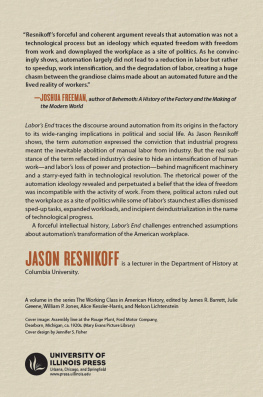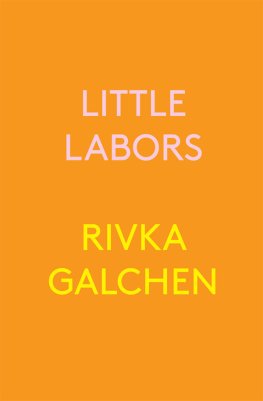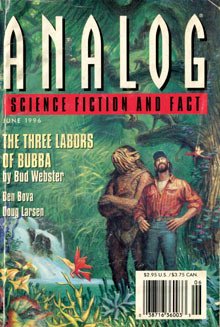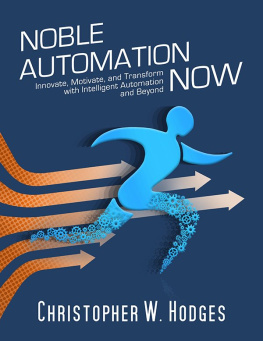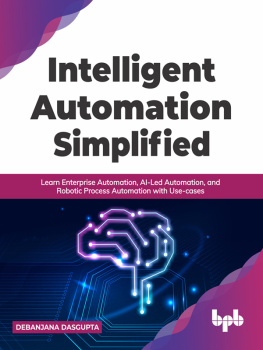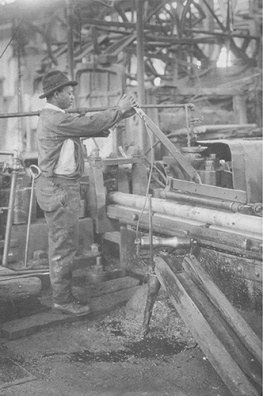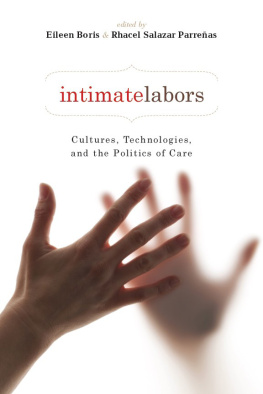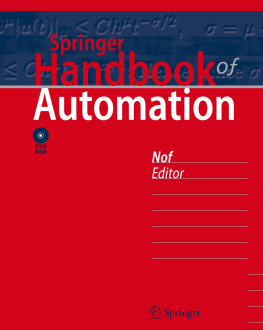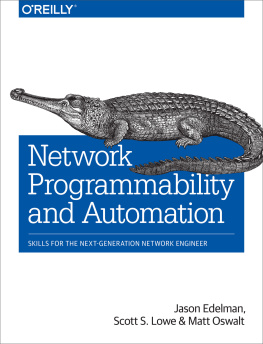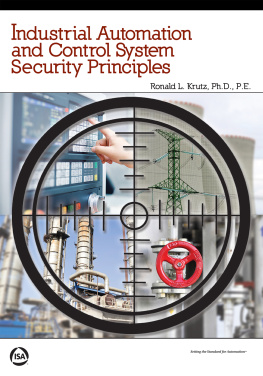Contents
Figures
Page List
Guide

labors end
the working class in american history
Editorial Advisors
James R. Barrett, Julie Greene,
William P. Jones, Alice Kessler-Harris,
and Nelson Lichtenstein
A list of books in the series appears at the end of this book.
labors end
How the Promise of Automation Degraded Work
jason resnikoff

2021 by the Board of Trustees of the University of Illinois
All rights reserved
Library of Congress Cataloging-in-Publication Data
Names: Resnikoff, Jason, author.
Title: Labors end : how the promise of automation degraded work / Jason Resnikoff.
Description: Urbana : University of Illinois Press, [2021] | Series: The working class in American history | Includes bibliographical references and index.
Identifiers: LCCN 2021028061 (print) | LCCN 2021028062 (ebook) | ISBN 9780252044250 (cloth) | ISBN 9780252086298 (paperback) | ISBN 9780252053214 (ebook)
Subjects: LCSH: Labor supplyEffect of automation on United States. | Occupational trainingUnited States. | AutomationSocial aspects. | LaborUnited States History.
Classification: LCC HD6331.2.U5 R45 2021 (print) | LCC HD6331.2.U5 (ebook) | DDC 303.48/340973dc23
LC record available at https://lccn.loc.gov/2021028061
LC ebook record available at https://lccn.loc.gov/2021028062
Contents
Acknowledgments
I am indebted to the archivists who offered invaluable assistance at the Harvard Business Schools Baker Library, the Schlesinger Library of Harvard University, the John F. Kennedy Presidential Library, the National Archives and Records Administration at College Park, New York Universitys Tamiment Library and Robert F. Wagner Labor Archive, and the Walter P. Reuther Library at Wayne State University. The Baker Librarys Alfred D. Chandler Travel Fellowship, an Exploratory Research Grant from the Hagley Museum and Library, and a travel grant from Columbia Universitys American Studies Department provided research support. I am grateful to Todd Gitlin, who granted me an interview and allowed me the extraordinary privilege of taking home files from his personal papers. I am likewise grateful to Karen Nussbaum and Margery Davies, both of whom took time to sit for interviews. It is a pleasure to thank James Engelhardt and Alison Syring of the University of Illinois Press, who edited the manuscript, as well as Alex Sayf Cummings and Joshua Freeman, whose comments made this a stronger book.
As many have before me, I discovered much of what I learned about history by trying to make a little bit of it myself. My time as an organizer for the GWC-UAW and CPW-UAW in Local 2110 taught me not only about how historical change happens but why we study history in the first place. For that insight I am grateful to my leads and comrades: Andy Crow, Alyssa Greene, Lale Alpar, Olga Brudastova, Bradley Gorski, Anthony Romer, Cora Burgantios, Joy Winkler, Leslie Fine, Michael Belt, Tiffany Yee-Vo, Maida Rosenstein, and Ken Lang. In addition, many colleagues and friends read portions of this work and offered helpful feedback. It is my privilege to name them here: Charles Halvorson, Allison Powers, Mary Freeman, George Aumoithe, Manual Bautista Gonzalez, Ari King, Amad Ross, Pollyanna Rhee, Ben Serby, Stephen Koeth, Scott MacFarlane, Rebecca Lossin, Mookie Kideckel, Aline Voldoire, Kristina Moore, and Patrick Barrett.
This book benefited enormously from the labor and wisdom of Mae Ngai, Matthew Jones, Eric Foner, Robert Amdur, Anders Stephanson, Herbert Sloan, Richard John, Barbara J. Fields, Nelson Lichtenstein, and Elizabeth Blackmar. I suspect I will never be able to repay Alice Kessler-Harris for everything she has done for me and this project. In addition, for every page that appears in this book I wrote three more, and Casey Nelson Blake read them all; he shepherded this project from the beginning and saved me from many infelicities of thought, fact, and style.
Robert and Sandra Resnikoff, Philip Gary, and Amanda Resnikoff gave me the benefit of their warmth and intelligence; they have these many years sustained both me and this work. And, finally, I could not have written this book were it not for Lou Resnikoff, my unfailing colleague, my teacher, and my comrade.
labors end
Introduction
It is not from machines that we learn the purpose of machines.
Lewis Mumford
The great question will forever remain, who shall work?
John Adams
This book is about the meaning of work in the United States after World War II. It did not start out that way. It began, rather, as an attempt to pin down the precise definition of the word automation, coined by the American automobile industry in the years immediately following the war. I had noticed that some historians of the period granted automation a degree of historical agency. Whatever it was, it made things happen. Although automations advocates exaggerated its utility and underestimated its costs, writes Thomas Sugrue, automation sometimes did have dramatic effects. I wanted to know what precisely had achieved these results and how.
Yet, surprisingly, while the positive and negative effects of the phenomenon called automation have been the subjects of intense debate since the middle of the twentieth century, the origins of the word have received little attention from historians. This is all the more remarkable considering that at the time when automation supposedly achieved its most impressive results, its definition was notoriously controversial. There is much truth in the quip, wrote John Diebold, who perhaps did more than anyone to popularize the word, that it is as hard for a group of businessmen to define automation as it is for a group of theologians to define sin. Nevertheless, most historians who write on the subject assume, as I did, that the word automation describes a clear-cut technological processthe replacement of human labor with machine action. Regardless of whether they believe it betokens good or evil, scholars have used the word as though it had been summoned into existence by straightforward changes in the means of industrial production.
The origins of automation, however, were not primarily technical. They were ideological. Coined in the late 1940s by an executive at the Ford Motor Company to refer to machines that bored holes in engine blocks, by the early 1950s the word no longer described a specific technology or labor process. It expressed, rather, a conviction: That industrial progress meant the abolition of human labor from industry, and in particular, manual labor. According to this ideological commitment, technological development and the end of human laboring were synonymous. As technology improved, work would naturally diminish. The substance of automation, however, was not the abolition of labor but, instead, its mystification. Hidden behind spectacular new machines and an abiding faith in inevitable technological revolution, human beings continued to labor and produce value.
Rather than describing the state of the mechanical arts, when lawmakers, managers, and union leaders spoke of automation they were talking as much about what they believed work meant as they were the actions of a specific piece of mechanism. The rhetorical power of the ideology called automation both revealed and perpetuated a conviction held by Americans from all walks of life that the activity of work was incompatible with freedom. A free person, the proponents of automation held, was free from work. Until then this belief had been the conviction of slaveowners, aristocrats, and in the late nineteenth century, a minority of socialist thinkers. In fact, American technological utopians of the turn of the twentieth century had generally believed that a machine-wrought utopia would make work pleasant, rather than abolish it. We teach that labor is necessary and honorable, that idleness is robbery and disgrace, wrote Henry Olerich in his 1883 speculative classic,

